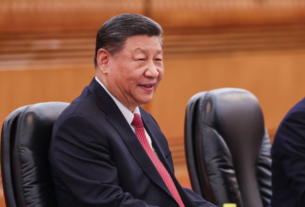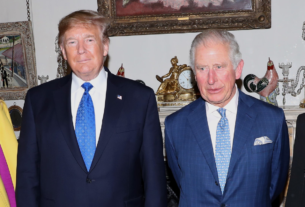The United States is scaling back its involvement in global health initiatives at a critical time. Experts warn that this move could weaken disease surveillance and response efforts worldwide.
One of the most impacted programs is the Global Measles and Rubella Laboratory Network (Gremlin). This network, consisting of over 700 international labs, tests around 500,000 patient samples annually.
Gremlin plays a vital role in tracking infectious diseases beyond measles and rubella. It monitors Covid-19, RSV, dengue, yellow fever, and Ebola, among others.
Despite its significance, Gremlin operates on a modest budget of just $8 million per year. This is less than 10% of the cost of a single U.S. F-35 fighter jet.
The program relies heavily on funding from the U.S. Centers for Disease Control and Prevention (CDC). Since 1946, the CDC has led global efforts to fight infectious disease outbreaks.
However, shortly after President Donald Trump took office in January, funding for Gremlin was suddenly cut. The decision has thrown the program’s future into uncertainty.
Without U.S. financial support, Gremlin now faces an urgent need to secure alternative funding. Health experts fear that without intervention, critical disease monitoring may collapse.
The loss of funding could slow early detection of dangerous outbreaks. This would leave countries vulnerable to uncontrolled disease spread.
Global health officials stress the importance of maintaining international partnerships. They argue that disease threats require coordinated efforts, not isolation.
The withdrawal also raises concerns about the U.S. commitment to global health security. Some fear it signals a broader shift away from international cooperation.
Public health leaders are now scrambling to find alternative donors for Gremlin. Organizations and governments worldwide are being urged to step in.
Critics warn that reducing global health investments could backfire. Diseases that go undetected elsewhere can quickly reach U.S. shores.
Investing in disease surveillance is seen as a cost-effective strategy. Preventing outbreaks saves far more money than responding to full-blown pandemics.
Experts also highlight the role of global health programs in pandemic preparedness. Networks like Gremlin provide data crucial for vaccine development and containment strategies.
The decision to cut funding comes at a time when new disease threats are emerging. Climate change and increased global travel have heightened the risk of outbreaks.
Health organizations are calling for renewed commitment to international disease monitoring. They stress that global cooperation is essential for protecting public health.
For now, Gremlin’s future remains uncertain. The coming months will determine whether alternative funding sources can be secured.
If the network collapses, experts warn that the world could face greater risks from infectious diseases. Strong global health systems are critical for detecting and containing future threats.




